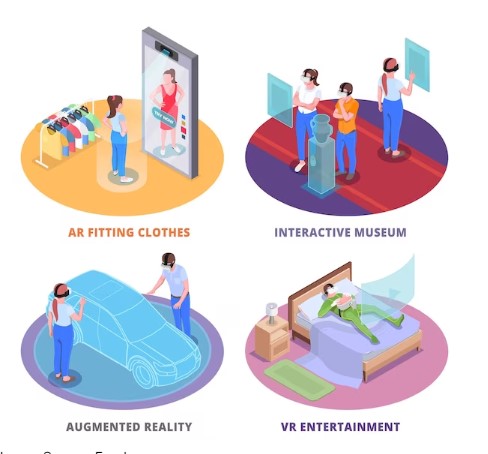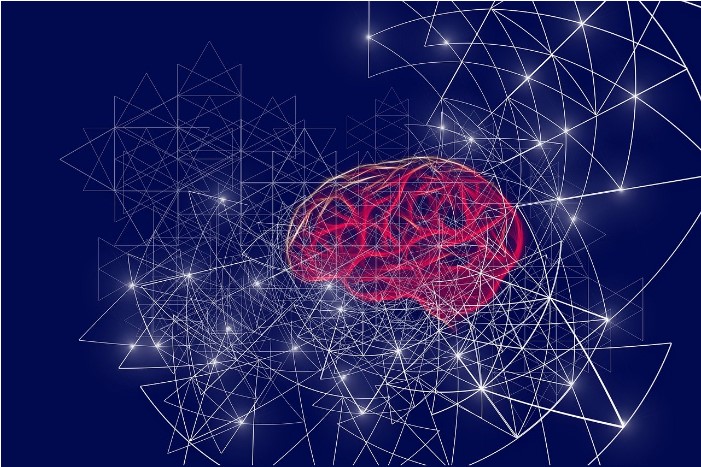AI Ethics for a Better Future: Self-Development
As artificial intelligence (AI) continues to advance at an astonishing pace, so does the need to address the ethical implications that come with it. How can we ensure that AI is used responsibly and in a way that benefits humanity? This is the question at the forefront of the discussion on ethics in AI and its future.
Importance of Ethics in AI
Ethics in AI involves considering the moral and social implications of the technology and making decisions that align with human values. It encompasses issues such as privacy, bias, accountability, and transparency. By addressing these concerns, we can create a future where AI is used ethically and helps solve complex problems.
AI has the potential to revolutionize industries and improve our lives in countless ways. From healthcare to transportation, AI technologies can enhance efficiency and accuracy. However, without proper ethical considerations, these advancements can also lead to unintended consequences. For example, AI algorithms that are trained on biased data can perpetuate harmful stereotypes and discriminate against certain groups. Ethical AI ensures that these risks are minimized and that AI systems are designed to prioritize fairness, equality, and inclusivity.
AI Ethics for Self Development: Shaping the Future
In the rapidly evolving field of Artificial Intelligence (AI), the importance of ethics has emerged as a key component for personal and societal development. AI has the potential to greatly enhance our lives but also poses unique ethical challenges that we need to address for responsible and beneficial progress.
The Intersection of AI and Self Development
The integration of AI in various aspects of life offers an unprecedented opportunity for personal growth and development. From personalized learning algorithms to AI-driven health and wellness tools, the technology is increasingly becoming a part of our journey towards self-improvement.
Ethical Considerations in AI
- Data Privacy and Security: With AI systems often relying on vast amounts of personal data, ethical concerns around privacy and security are paramount. It’s crucial for users to be aware of how their data is used and protected. Ensuring that AI systems respect user privacy and have robust security measures in place is a moral imperative.
- Bias and Fairness: AI algorithms can unintentionally perpetuate and amplify biases present in their training data. This can lead to unfair outcomes in areas like job recruitment, loan approvals, and even legal judgments. Ethical AI development requires the conscious effort to minimize biases and promote fairness, ensuring that AI tools are equitable and just.
- Transparency and Accountability: Understanding how AI systems make decisions is essential, especially when these decisions impact human lives. Ethical AI should be transparent and its developers accountable for the outcomes. This transparency allows users to trust and effectively integrate AI into their personal development plans.
- Empowerment vs. Dependence: While AI can significantly augment human capabilities, there’s a thin line between empowerment and over-reliance. Ethical use of AI in self-development focuses on enhancing human skills and decision-making, not replacing them.
AI in Personalized Learning
AI’s role in personalized education exemplifies its potential in self-development. AI-powered educational platforms can adapt to individual learning styles, pace, and preferences, offering a tailored learning experience. This personalization can lead to more effective and enjoyable learning, but it’s important that these systems are used ethically, ensuring they enhance rather than replace traditional educational methods.
The Future of Ethical AI in Self-Development
As we move forward, the ethical development and use of AI in self-improvement contexts will be crucial. This involves ongoing dialogue among technologists, ethicists, and users, continuous learning, and adaptation as new ethical challenges emerge. It’s not just about harnessing AI’s power for personal growth but doing so in a way that is respectful, fair, and beneficial for all.
In summary, AI ethics is not just a technical issue but a fundamental part of how we responsibly grow and develop as individuals in a technologically advanced society. The aim should always be to use AI as a tool for empowerment, complementing human abilities and enhancing our potential for personal development.
Current Challenges and Controversies in AI Ethics
Despite the importance of ethics in AI, there are several challenges and controversies that arise in its implementation. One major challenge is the lack of standardized ethical guidelines and regulations. The rapid pace of AI development has outpaced the establishment of ethical frameworks, leaving developers and policymakers to navigate murky waters.
Another challenge is the potential for AI to replace human jobs. While AI has the potential to automate repetitive tasks and increase productivity, it also threatens job security for many individuals. Ethical considerations include ensuring a just transition for workers and creating opportunities for retraining and upskilling.
Controversies surrounding AI can also arise from its potential to infringe upon privacy rights. AI systems that collect and analyze personal data raise concerns about surveillance and the potential for misuse. Ethical AI development involves implementing strong privacy protections and ensuring that individuals have control over their personal information.
The Role of Government and Industry in Promoting Ethical AI
Both government and industry have a crucial role to play in promoting ethical AI. Governments can establish regulations and guidelines that ensure AI development is aligned with societal values. They can also invest in research and development to address ethical challenges and provide support for ethical AI initiatives.
Industry leaders have a responsibility to prioritize ethics in AI development. By implementing ethical frameworks and principles, companies can ensure that their AI systems are designed with the best interests of society in mind. Industry collaboration and knowledge sharing can also contribute to the advancement of ethical AI practices.
Ethical Frameworks and Principles for AI
Several ethical frameworks and principles have been proposed to guide AI development and decision-making. One such framework is the principle of fairness, which aims to ensure that AI systems do not discriminate against individuals or perpetuate existing biases. Fairness can be achieved through careful data selection and algorithm design.
Transparency is another key principle in ethical AI. AI systems should be transparent and explainable, allowing humans to understand the decisions made by the system. This transparency enables accountability and allows for the identification and correction of biases or errors.
In addition to fairness and transparency, ethical AI frameworks often include principles such as accountability, privacy, and human control. These principles provide a foundation for the responsible development and deployment of AI systems.
Building Trust and Transparency in AI Systems
Building trust in AI systems is crucial for their widespread adoption and acceptance. Trust can be fostered through transparency, explain ability, and accountability. AI developers should strive to make their systems understandable to non-experts, allowing individuals to have insight into the decision-making process.
Interpretable AI techniques, such as rule-based systems or decision trees, can help make AI systems more transparent. Additionally, providing clear explanations for the decisions made by AI systems can help build trust and improve user acceptance.
Accountability mechanisms, such as establishing regulatory bodies or implementing third-party audits, can also contribute to building trust in AI systems. These mechanisms ensure that AI developers and users are held accountable for the ethical implications of their systems.
The Future of Ethics in AI
The future of ethics in AI holds immense potential. As AI continues to advance, it is crucial that ethical considerations keep pace. By integrating ethics into the development and deployment of AI systems, we can harness the power of this technology while minimizing its potential risks.
Ethical AI has the potential to revolutionize industries such as healthcare, education, and transportation. It can help improve diagnosis and treatment in healthcare, enhance personalized learning in education, and optimize transportation systems for efficiency and safety.
However, realizing this potential requires ongoing collaboration between academia, industry, and policymakers. It requires continued research and development to address emerging ethical challenges and ensure that AI is used in a way that benefits all of humanity.
Potential Benefits of Ethical AI
Ethical AI has numerous benefits for society. By prioritizing fairness and inclusivity, AI systems can help address systemic biases and reduce inequalities. Ethical AI can also enhance decision-making processes by augmenting human capabilities and providing unbiased insights.
In healthcare, ethical AI can improve diagnosis accuracy and treatment recommendations, ultimately saving lives. In transportation, it can help optimize traffic flow and reduce accidents. In education, ethical AI can personalize learning experiences, enabling students to reach their full potential.
Furthermore, ethical AI can contribute to the creation of sustainable and environmentally friendly solutions. By optimizing energy consumption and reducing waste, AI can help address pressing global challenges such as climate change.
Conclusion: Working towards a Better Future for AI Ethics
As AI continues to shape our world, it is imperative that we prioritize ethics in its development and deployment. By addressing the ethical implications of AI, we can ensure that this technology benefits humanity and avoids potential pitfalls.
Ethics in AI involves considering issues such as privacy, bias, accountability, and transparency. By developing ethical frameworks and principles, we can guide the responsible development and use of AI systems. Building trust and transparency in AI systems is crucial for their widespread acceptance and adoption.
The future of ethics in AI holds immense potential. Through ongoing collaboration between academia, industry, and policymakers, we can shape a future where AI is used ethically and helps solve complex problems across various industries.
By embracing ethical AI, we can create a better future for all, where technology serves as a tool for positive change and benefits society as a whole. Let us work together to harness the power of AI while upholding our shared human values.






